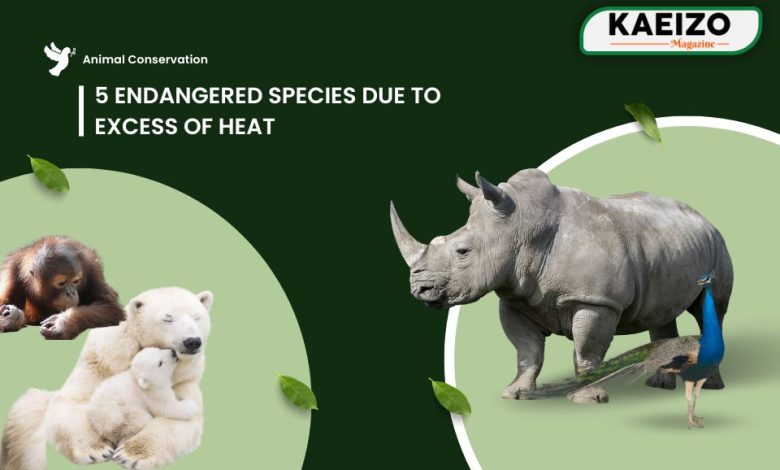
Here are five endangered species particularly affected by increasing heat:
- Polar Bears (Ursus maritimus)
- Habitat: Arctic regions.
- Threats: Polar bears rely heavily on sea ice for hunting seals, their primary food source. As global temperatures rise, sea ice melts earlier in the year and forms later, reducing the time polar bears have to hunt and leading to malnutrition and declining populations.
- Hawksbill Sea Turtle (Eretmochelys imbricata)
- Habitat: Tropical coral reefs, lagoons, and open ocean.
- Threats: Rising temperatures affect the sex ratio of hatchlings, as the temperature of the sand where eggs are incubated determines the sex. Warmer sands produce more females, leading to skewed sex ratios that threaten future populations. Additionally, coral bleaching, driven by higher sea temperatures, destroys vital foraging grounds.
- Golden Toad (Incilius periglenes)
- Habitat: Cloud forests of Costa Rica.
- Threats: The golden toad is already classified as extinct, primarily due to climate change which altered its habitat conditions. This species is often cited as an example of how temperature increases and changing precipitation patterns can drive species to extinction.
- Adelie Penguins (Pygoscelis adeliae)
- Habitat: Antarctic coastlines.
- Threats: Like polar bears, Adelie penguins depend on sea ice for accessing their prey, such as krill and fish. Melting ice reduces food availability and increases predation and competition, severely impacting their breeding success and survival rates.
- Coral Species (e.g., Acropora cervicornis, Staghorn Coral)
- Habitat: Tropical and subtropical oceans, primarily in shallow waters.
- Threats: Corals are highly sensitive to temperature changes. Increased sea temperatures cause coral bleaching, where symbiotic algae are expelled, leading to weakened and dying corals. Repeated bleaching events significantly reduce coral cover and biodiversity, affecting entire reef ecosystems and the numerous species that depend on them.




